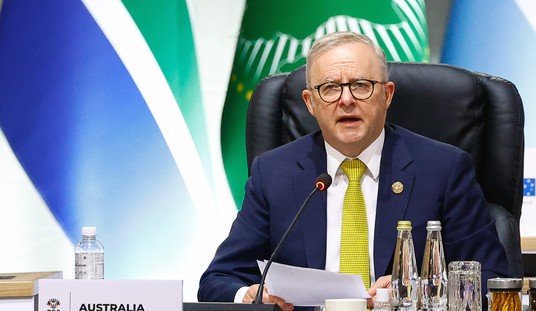
The fighting in Iraq, Afghanistan and Libya is causing our civilian and military leaders to review and reassess the involvement of American military forces in insurgencies and guerrilla warfare and more clearly determine what should be the role of the United States — the shining city on the hill — in such wars. This causes the entire area of Defense spending and force structure to be subjected to a top-to-bottom roles, missions, budget and force structure review.
Talk around Washington centers on using this review to halve the $700 billion annual DOD budget. The rationale is that now that the twin wars in Afghanistan and Iraq are winding down, our military forces can use the lessons they have learned fighting these wars to better prepare to fight the next generation of wars better, using fewer resources – doing more with less, as we prepare for future wars that I pray do not come to pass.
There is nothing new or wrong in trying to do more with less, but in war it is wise to let the facts be the facts. They are not what senior officers in the Pentagon, Congress and White House wish them to be; they are what they are.
Defense Secretary Don Rumsfeld tried to get General Eric Shinseki, Chief of Staff of the Army, to agree that the Iraq War would be followed by a cheap and easy peace. Shinseki maintained that it would take more soldiers on the ground in Iraq to keep the peace than it would to win the war. Rumsfeld was furious, brushed Shinseki’s comments aside, went on to win the war, lose the peace and get bogged down in nation building just as Shinseki predicted he would.
Success in combat depends on many things, including the development of new weapons and weapons delivery systems, and the money necessary to develop and purchase them. It also depends on a clear definition of the mission and strong, intelligent leadership at all levels.
The United States military knows how to fight insurgencies successfully and each new war in which our forces participate adds to their reservoir of knowledge and experience. But the civilian leaders who commit our military forces to these wars do not share the same history of knowledge and experience.
We presently have a President with zero military experience and a Secretary of Defense with little more. Do they possess the qualifications needed to review the restructuring of our armed forces and make the necessary decisions concerning the development of new weapon’s technologies and capabilities? Not hardly.
One day at Fort Bragg, North Carolina, while I was attending the Special Forces Operations Officer School, the class was lectured by an elderly, silver-haired Polish military patriot of World War II fame. He was of medium height and stood ramrod erect in the center of the stage, instead of hiding behind the podium as most speakers did.
In WWII he fought against the Germans who had invaded his native Poland, but the Germans captured and imprisoned him. He escaped and eventually made his way from Switzerland to England. He volunteered to parachute back into Poland and help the Polish resistance organize and fight a guerilla war against the now occupying Russians. For a while he succeeded in interdicting Russian military and supply convoys, but eventually the Russians captured him and marked him for execution. Miraculously, he again escaped this time making his way out of Europe by way of the North Sea back to England.
His lecture that day was on how to successfully organize for, fight and win guerilla wars. During the question-and-answer session, one of my classmates – referring to President Kennedy’s recent intervention in Vietnam — asked, “How do you save a nation that has no history of freedom or self-rule and where the inhabitants refuse to fight for their own freedom?”
“You don’t,” he replied. “You let them be enslaved. If a people are unwilling to fight to secure freedom and democracy for themselves, you have two options. You can occupy them and take over their government and armed forces, including promotion authority. This assumes that you run their communication systems, transportation and public schools.
“It’s not hit and run. If your nation is willing to make such an extreme sacrifice and investment for the next 20 or 30 years, perhaps you then can successfully educate, train, motivate and raise up a generation of young people who will embrace democratic values and be willing to fight and die to preserve them.
“But personally I think it’s a gamble. There is little chance of success if you adopt that course of action,” he shrugged and soothed down his silver hair. “The other alternative is to write them off as a free nation.”
Over the years, particularly during my two tours in Vietnam, where my first tour was commanding the 220th Reconnaissance Airplane Company (L-19) in I Corps and along the DMZ, and my second tour was as an advisor to a South Vietnamese infantry regiment operating in the jungles and highlands of II Corps, I often thought back on his remarkable, frightening observations.
At the time his comments seemed unduly harsh and cynical. But later, in musing about the wars in Vietnam, Iraq and Afghanistan, I came to have more of an appreciation for his thoughts. No matter how badly we want to see all the peoples of the world enjoy the liberty and freedom that our Founders fought for and bequeathed to us, we cannot do for other nations what they are not willing to do for themselves.
The roots of America’s tree of liberty are still watered by the blood of its patriots. Dying to protect the freedom of the United States may at times be necessary, and is always noble.
Dying for another nation’s unappreciated notion of freedom may very well be a whole different matter.







Join the conversation as a VIP Member